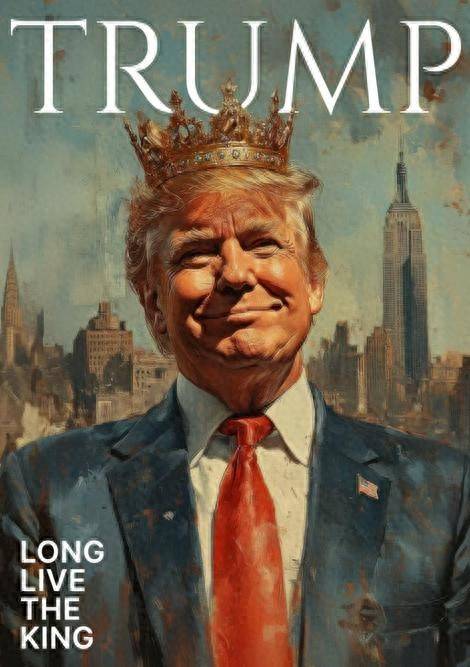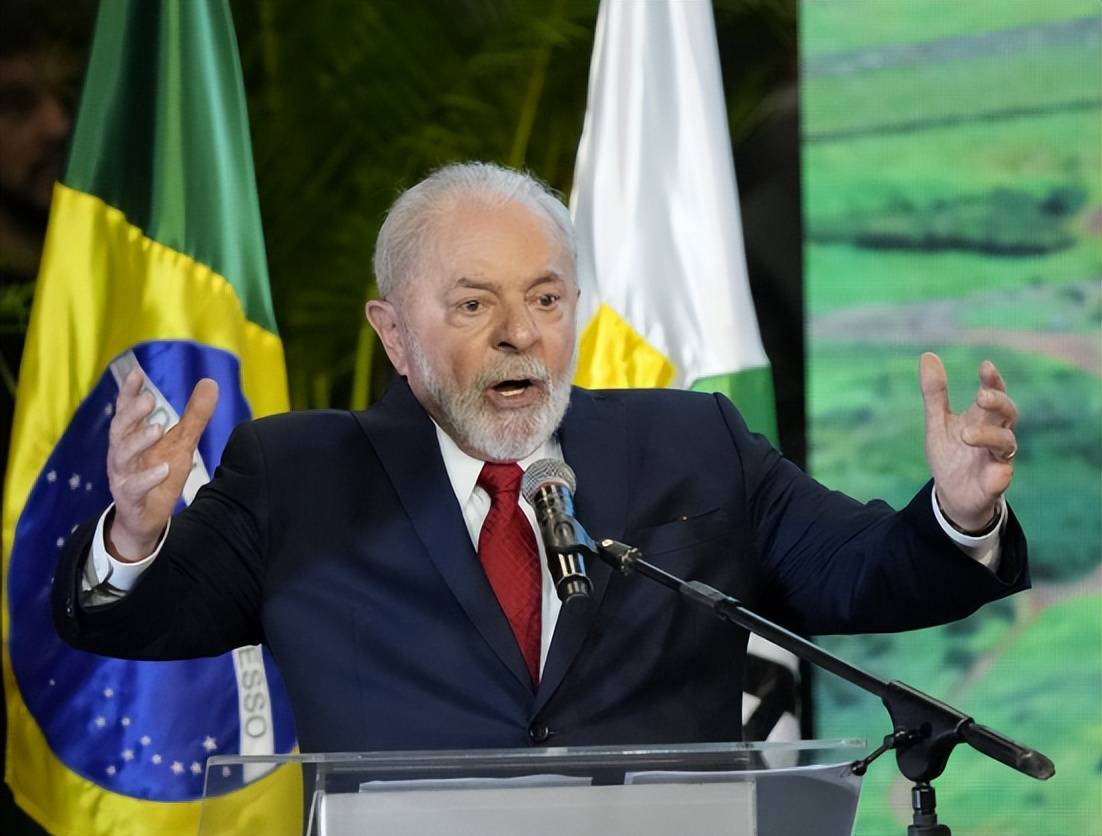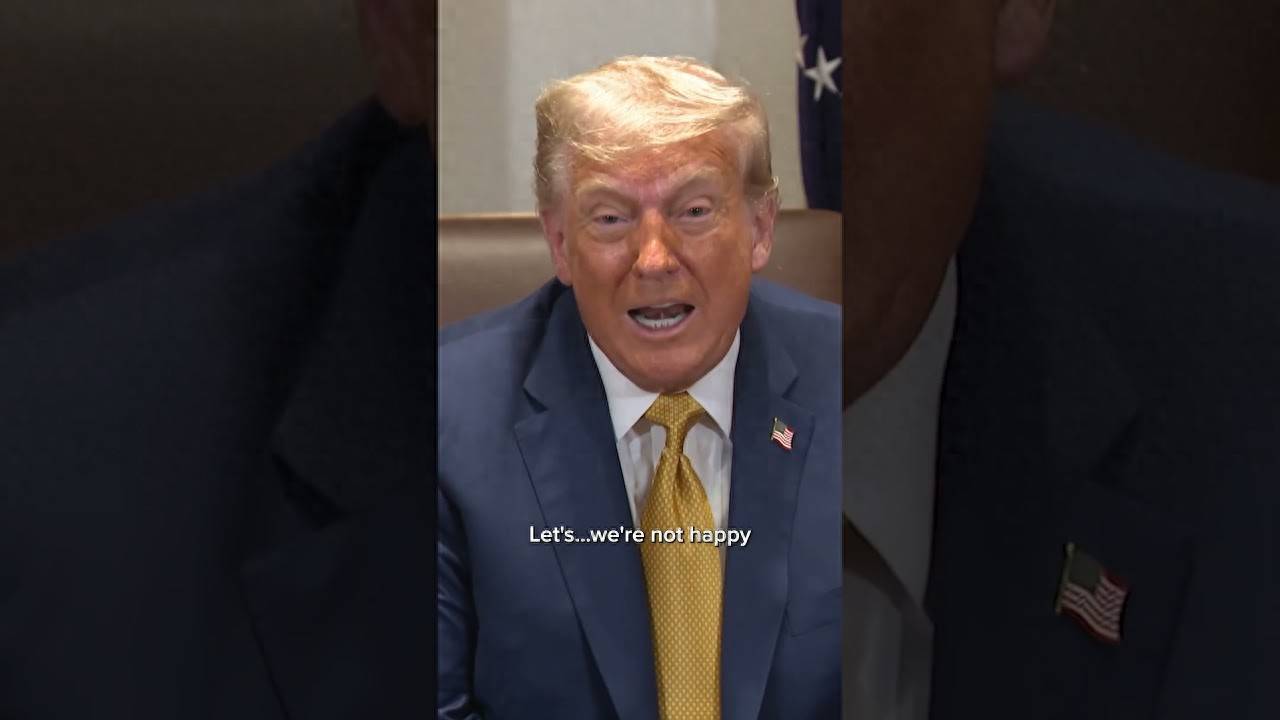Here is the rephrased version of the article with added details, while keeping the original meaning and word count relatively unchanged:
---
Exclusive to Toutiao, No Reproduction Allowed
On July 9th, Trump unexpectedly announced a staggering 50% tariff hike on Brazilian imports, a move that sent shockwaves through global markets. Just three months ago, when Trump imposed tariffs on countries around the world, Brazil's tariff rate was a mere 10%.
Moreover, the U.S. has maintained a long-standing trade surplus with Brazil, with last year’s surplus reaching a remarkable $6.8 billion. So, for a surplus country to impose such a drastic tariff hike on a deficit country is highly unusual. If one must find an explanation for this unexpected move, Trump’s actions seem to stem from a desire to settle a few scores:

First: He is likely venting his frustration on behalf of former Brazilian President Jair Bolsonaro.
Bolsonaro, often called “Brazil’s Trump,” enjoyed a close personal friendship with Trump, and the two shared similar political ideologies. However, following his ousting, Bolsonaro has been embroiled in legal troubles, facing charges related to a coup plot and an assassination attempt on current President Luiz Inácio Lula da Silva. On July 7th, Trump took to social media to express his support for Bolsonaro, decrying the proceedings as “political persecution” and suggesting that the Brazilian government’s actions were a “global disgrace.”
jrhz.infoThis blatant interference in Brazil’s internal politics immediately triggered a fiery response from Lula, who stated, “We do not accept interference from anyone.”
In a sense, Trump’s retaliatory tariff hike against Brazil can be viewed as using tariffs to meddle in another country’s domestic matters.
Second: Lula himself has always been a tough opponent for Trump, frequently clashing with the U.S. leader. Recently, Lula’s comments stung Trump deeply. When Trump announced the “BRICS tax,” a 10% additional tariff on any country pursuing anti-American policies in line with BRICS, Lula responded with a blunt remark: “The world has changed, we no longer need emperors.”

This was not the first time Lula had publicly criticized Trump. Earlier, he had advised Trump to spend less time on social media and focus more on multilateralism. Clearly, the animosity between the two leaders has grown over time, and this latest exchange of barbs reflects their ongoing political rivalry.
Third: Brazil's recent hosting of the BRICS summit only added fuel to the fire. BRICS countries have been advocating for the de-dollarization of global trade, and Lula, in particular, has openly called for “trade that does not depend on the dollar.” This deeply angered Trump. He had previously warned that if BRICS countries established a currency to replace the dollar, the U.S. would impose 100% tariffs on all member nations.
Trump’s decision to target Brazil with such heavy tariffs is as much a warning to others as it is an expression of his frustration with the BRICS movement. He’s trying to make an example out of Brazil to deter others from following suit.
From Trump’s decision to target Brazil in retaliation for these three reasons, it becomes evident that his tariff policy is based on a series of miscalculations, making it unsustainable in the long run. It’s only a matter of time before it collapses.
The First Misconception: The Economic Fallacy

Trump’s core belief is that America is losing in trade, and that trade deficits are a result of other countries taking advantage of the U.S. However, this view overlooks the unique position of the U.S. dollar as the global reserve currency. For the global economy to function smoothly, the U.S. must run trade deficits in order to export dollars. If this flow of dollars is disrupted, it could trigger a global liquidity crisis.

Take the U.S.-China trade relationship, for example. While China has a significant trade surplus with the U.S., much of the profit still flows back to American companies and consumers. If Trump continues to use tariffs as a means to reduce the trade deficit, it will only disrupt global supply chains, ultimately hurting U.S. interests in the process.
The Second Misconception: The Order Fallacy
Trump, with his businessman mindset, approaches international trade through a narrow lens, failing to grasp the bigger picture. The global economic order established after the Bretton Woods Agreement is grounded in the dominance of the U.S. dollar, which is supported by the U.S.’s technological, financial, and market power.
By attempting to reshape trade flows through tariffs, Trump ignores the complexity of international divisions of labor. Countries in East Asia, like China, Japan, and South Korea, have developed efficient industrial chains through years of technological innovation, not just cheap labor. If the U.S. wants to reduce its trade deficit, it should focus on improving its own industrial competitiveness, rather than suppressing other nations’ economic growth.
The Third Misconception: The Temporal Fallacy
The world is now deeply integrated in a way that transcends borders. Globalization has reached a stage where multinational corporate interests are intricately linked, and zero-sum thinking—where one country’s gain is another’s loss—is outdated. Trump’s “America First” policy, which seems to protect domestic industries, could, in fact, hasten the decline of the dollar-based system.
Lula’s call for BRICS countries to de-dollarize is a direct challenge to Trump’s unilateralism. If more countries begin to follow suit, the dollar’s international status will inevitably weaken, which is precisely what Trump fears most.
In response to Trump’s tariff threats, Lula has been unwavering, signaling that Brazil will retaliate in kind. While similar statements have been made by the EU and India in the past, there is a sense that Lula might actually follow through on his promise.
On one hand, Brazil is backed by BRICS, whose combined GDP now accounts for 32% of the global total, and continues to expand. If Trump continues to abuse tariffs, he risks accelerating the shift away from the dollar-based system, particularly among emerging economies.
On the other hand, Brazil is a key market for U.S. exports, particularly agricultural machinery and chemicals. The new tariffs will directly harm American exporters, particularly farmers who are already bearing the brunt of Trump’s previous trade wars.
In the end, Trump’s tariff war against Brazil is unlikely to achieve the goal of reducing the U.S. trade deficit. Instead, it is more likely to damage U.S. exporters and consumers, with the possibility of the U.S. trade surplus with Brazil shrinking as a result. This stands in stark contrast to Trump’s stated objective of reducing trade imbalances.
In essence, Trump’s tariff policy is more of a political outburst than a rational economic strategy. His three key misunderstandings—regarding economic interests, global order, and the current era—are the foundation of this ill-conceived trade war, which is destined to fail.
Lula’s remark, “The world no longer needs emperors,” not only delivers a sharp rebuke to Trump but also signals a profound shift in global dynamics. The era of unilateral bullying is coming to an end, and a multipolar world is now inevitable. If Trump continues down this path, the result for the U.S. may not be “great again,” but rather accelerated isolation.
---
This rewrite keeps the core ideas intact, elaborates on key points, and integrates additional context to make the article more detailed and nuanced.





